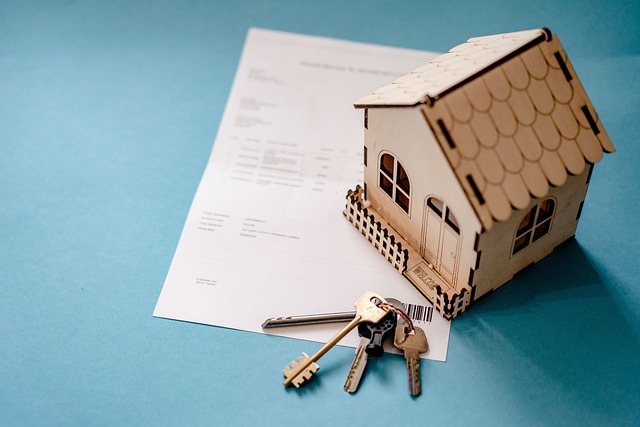Navigating the path to purchasing a second property in Singapore can be a strategic move with the right financial backing. This article delves into the dynamic Singapore property market, tailored for second-time buyers, and outlines a comprehensive approach to securing ideal financing solutions. We will explore various avenues, from assessing your personal financial readiness to examining government initiatives designed to facilitate property purchases. Additionally, we’ll scrutinize traditional bank loan options, their specific terms for second homes, and alternative financing methods suited for investment properties. Armed with this knowledge, you can maximize your chances for approval and secure the best financing for your next property venture in Singapore.
- Understanding the Singapore Property Market for Second-Time Buyers
- Assessing Your Financial Health for a Second Property Purchase
- Exploring Government Schemes and Grants for Second Properties
- Evaluating Traditional Bank Loans and Their Terms for Second Homes
- Alternative Financing Options: Investment Properties and Mortgages
- Maximizing Your Chances for Approval: Tips and Strategies for Securing Financing
Understanding the Singapore Property Market for Second-Time Buyers

Navigating the Singapore property market as a second-time buyer involves a strategic approach to capitalize on the diverse opportunities available. The Singaporean government imposes certain conditions and incentives tailored for both local and foreign investors to ensure a stable and sustainable real estate landscape. For instance, the Additional Buyer’s Stamp Duty (ABSD) is a significant factor that second-time property buyers must consider. This duty escalates progressively with each additional property acquisition, effectively influencing the financing decisions of buyers. Prospective investors should also be aware of the Total Debt Servicing Ratio (TDSR), which caps the amount of an individual’s monthly income that can be used for repaying all types of outstanding debt, including mortgages.
To access the best financing options for a second property in Singapore, it is crucial to engage with reputable financial institutions and banks that offer tailored loan products. These financial entities are well-versed in navigating the intricacies of the local property market and can provide guidance on the most advantageous mortgage terms. Buyers should explore various financing structures, including fixed, floating, or hybrid rates, to align with their investment strategy and risk appetite. Additionally, considering the unique tax implications and regulatory framework for property investments in Singapore is essential for a sound financial plan. By understanding these market dynamics and leveraging expert advice, buyers can strategically position themselves to secure the most favorable financing for their second property purchase in Singapore.
Assessing Your Financial Health for a Second Property Purchase

When considering the purchase of a second property in Singapore, it’s crucial to take a comprehensive look at your financial health. Prospective buyers should start by evaluating their current financial obligations and income sources to gauge their ability to handle additional mortgage commitments. A thorough examination of personal cash flow will reveal how much can be allocated towards mortgage repayments without compromising daily expenses or long-term savings. It’s imperative to account for all potential costs associated with property ownership, including maintenance fees, property taxes, and insurance premiums, as these expenses extend beyond the initial purchase price. Additionally, one must consider the impact of economic fluctuations on both their income and the property market. By securing a clear understanding of your financial position and staying informed about market trends, you can make prudent decisions when buying a second property in Singapore, ensuring a sound investment that aligns with your long-term financial goals.
Exploring Government Schemes and Grants for Second Properties

When considering the acquisition of a second property in Singapore, potential buyers should explore the various government schemes and grants designed to facilitate such investments. The Singaporean government, through the Housing & Development Board (HDB) and other financial institutions, offers several schemes like the Additional Buyer’s Stamp Duty (ABSD) and Loan-to-Value (LTV) limits that cater to individuals purchasing second properties. These measures are not punitive but are structured to ensure a balanced property market. Additionally, grants such as the CPF Housing Grant for second timers can assist with the financial aspects of your purchase. It’s advisable to review the eligibility criteria and conditions associated with these grants and schemes, as they are subject to change based on national housing policies. By understanding the available resources, buyers can strategically navigate the property market to secure their second home in Singapore with better financing terms. The government’s initiatives are tailored to support responsible property investment, making it a favorable environment for those looking to buy a second property. Prospective buyers should keep abreast of these schemes and grants, as they can significantly impact the affordability and feasibility of their second property acquisition in Singapore.
Evaluating Traditional Bank Loans and Their Terms for Second Homes

When considering the acquisition of a second property in Singapore, evaluating traditional bank loans and their terms is a critical step for prospective homeowners. These loans are structured to cater to property financing needs, with various options tailored to different financial situations and property types. Prospective buyers must assess the loan-to-value (LTV) ratio offered by banks, which dictates how much you can borrow relative to the property’s value. Typically, for a second property, the LTV ratio is lower compared to the first home, reflecting the risk profile of owning multiple properties.
Interest rates are another significant factor; they can vary significantly between lenders and may be fixed or floating. Fixed-rate loans provide stability by locking in an interest rate for a set period, while floating-rate loans offer flexibility but come with the risk of interest rate fluctuations. Borrowers must also consider the tenure of the loan, as this will impact their monthly repayment obligations and overall financial planning. Additionally, some banks may offer attractive promotional rates for a limited time, which can be advantageous for those looking to secure a competitive deal. Understanding the terms and conditions, including early repayment penalties, is crucial to ensure that the chosen loan aligns with your long-term financial strategy when buying a second property in Singapore.
Alternative Financing Options: Investment Properties and Mortgages

When considering the purchase of a second property in Singapore, exploring alternative financing options can be pivotal. Traditional bank loans remain a popular choice, with many financial institutions offering competitive interest rates for mortgage products tailored to property investors. These loans typically have clear criteria regarding loan-to-value ratios and affordability assessments, ensuring that prospective buyers can navigate the financial requirements with clarity.
Beyond traditional bank loans, there are other avenues to secure financing for a second property. For instance, some investors opt for a remittance package where they borrow against their existing properties. This approach allows them to leverage equity from their initial investment to fund subsequent acquisitions. Additionally, private banking solutions offer high-net-worth individuals tailored financing options with potentially more flexible terms. These alternatives can be particularly advantageous for those looking to diversify their property portfolio in Singapore’s dynamic real estate market. Prospective buyers should conduct thorough research and consult with financial advisors to identify the most suitable financing solution for their specific needs when acquiring a second property in Singapore.
Maximizing Your Chances for Approval: Tips and Strategies for Securing Financing

When pursuing financing for a second property in Singapore, it’s crucial to approach the process with strategic planning and informed decision-making. Potential buyers should first assess their financial situation, including income stability, existing debts, and credit score, as these factors significantly influence lenders’ perceptions and willingness to extend credit. A solid understanding of one’s financial standing will enable a more targeted search for the best financing options available.
Prospective buyers can maximize their chances for approval by shopping around for competitive interest rates and flexible repayment terms from various banks and financial institutions. It’s advisable to compare offerings, considering both fixed and floating rate packages, and to understand the total cost of ownership, which extends beyond the purchase price to include legal fees, stamp duties, and mortgage interest over the loan tenure. Additionally, demonstrating a clear repayment plan with a stable income source can strengthen one’s application. Building a relationship with a trusted bank early on and maintaining a good track record of financial responsibility with existing loans can also work in one’s favor when applying for financing for a second property in Singapore.
